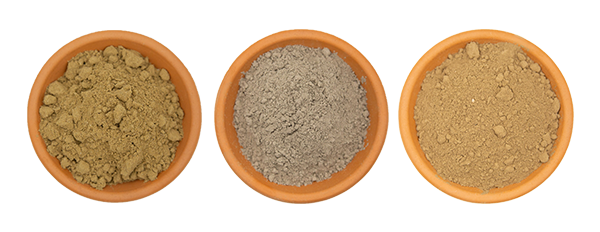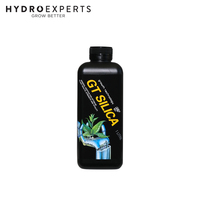Med-Tek Super Silica - [Size: 1L]
OUT OF STOCK
FREE SHIPPING OVER $499*
Pick up at store Free
Delivery Options:
If cart total is less than $499*
Freight applies
If cart total is $499* & above
Free
*excluding bulky items
International shipping
Click hereSECURE PAYMENTS WITH

BUY NOW, PAY LATER
Pay in 4, interest-free. Afterpay it.

ZIP NOW, PAY LATER
Repay on a convenient weekly, fortnightly or monthly schedule.

ENJOY NOW, PAY LATER





Super silica is the most concentrated agricultural-grade liquid silica product on the market today. When Super Silica is compared to most other brands, when applied at an equivalent ml/L usage rate, it proves to provide significantly more ‘Plant Available Silicon’ (PAS) to hydroponic solutions.
The chemistry of silica in hydroponic solutions is extremely complex but, to put things simply, plants can only uptake monosilicic/orthosilicic acid (H4SiO4). What this means is that only a percentage of any silica additive, when ¡t is applied to the solution, is available for plant uptake; i.e. when silica is added to aqueous environments (e.g. hydroponic nutrient solutions) chemical processes/reactions occur whereby non-bioavailable forms of Si become bioavailable as H4SiO4 and vice versa.
The quality of a silica product for use in hydroponics comes down to the amount (%) of ‘plant available Si’ (PAS) that any given product provides. This can be accurately measured using the 5-day method for determining the soluble silica (Si) concentration.
Features
- Increased disease resistance
- Increased resistance to pathogenic airborne fungi (e.g. Powdery Mildew)
- Increased resistance to waterborne pathogens
- Increased resistance to insects/pests
- Increased strength in cell structure
- Increased stress tolerance
- Increased drought tolerance
- Increased salt tolerance
- Increased yields
- Increased quality (higher essential oil production)
Specifications
- NPK: 0 – 0 – 20
In The Box
- [1] x Med-Tek Super Silica - [Size: 1L]
Recommended usage rate 0.25ml/L throughout grow and bloom
Med-Tek Coir Series
Feed chart based on 8-week bloom finishing time genetics. Some genetics take longer to finish and, as a result, feed recommendations should be adapted to suit. Switch down times from the18 hour lights on the vegetative phase to the 12-hour lights on the bloom phase will be determined by plant genetics and the desired finishing height of the plant/crop.
Vegetative Phase
.png)
Please note: we do not list in ppm, as some manufacturers do, because all ppm meters first measure in EC (electric conductivity) and then run a conversion program to display the reading in ppm. There are three different conversion factors (standards) that various manufacturers use for converting from EC to ppm. Thus, ppm is not a universal standard whereas EC is.
Bloom Phase
.png)
Cal-Mag Micro
Med Tek also manufactures and supplies Cal-Mag Micro, which doesn’t feature on the nutrient schedule. This is because, under normal coir growing conditions, our base nutrients supply adequate calcium and magnesium to fully satisfy the demands of the crop. However, Cal-Mag Micro was developed for growers who use RO or soft water (low to nil Ca and Mg in the water supply). Additionally, Cal-Mag Micro was produced to help plants that are under nutrient stress, and it is also handy for LED growers due to the fact that the calcium and magnesium requirement of the plant increases quite dramatically under some LED spectrums. Use Cal-Mag Micro at 1ml/L with RO or soft water supplies, 1- 2ml/L to help plants that are under nutrient stress (i.e. plants showing signs of calcium and/or magnesium deficiency) and use at 2ml/L during veg and transition if deficiencies appear in LED grows.
Feed charts should be seen as a guide only. Optimum EC is influenced by factors such as feed/fertigation frequency, light intensity and spectrum, temperature and humidity, and cultivar. Feed charts act to help less advanced growers (newbies) refine and develop a more sophisticated fertigation strategy relevant to their style of growing.



![Med-Tek Super Silica - [Size: 1L]](/assets/full/ADDT02001.jpg?20230424153350)
![Med-Tek Super Silica - [Size: 1L]](/assets/thumbL/ADDT02001.jpg?20230424153350)


 Calculate shipping
Calculate shipping







